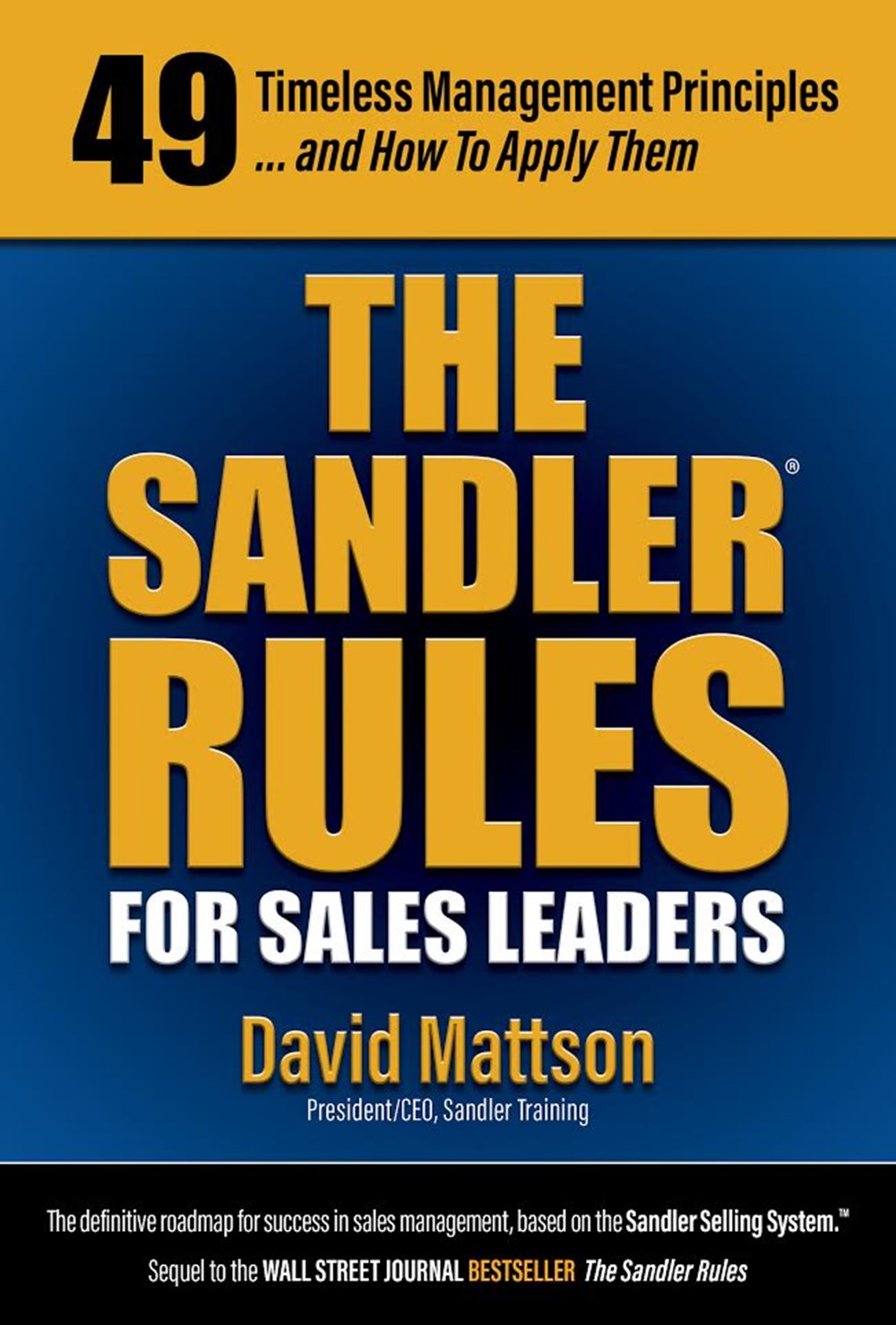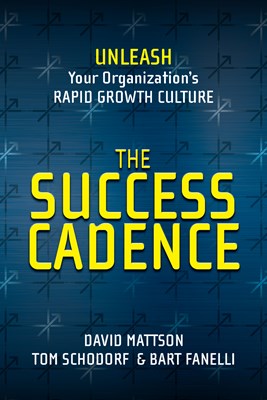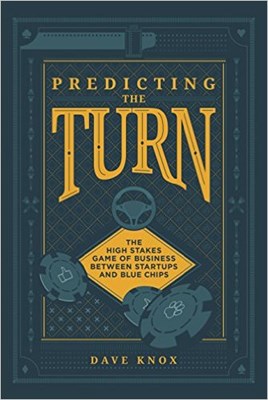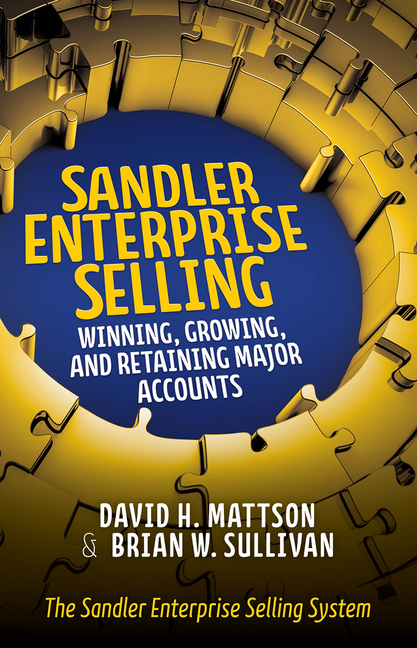
The Sandler Rules for Sales Leaders: 49 Timeless Management Principles . . . And How To Apply Them
| Quantity | Price | Discount |
|---|---|---|
| List Price | $26.95 | |
| 1 - 24 | $22.91 | 15% |
| 25 - 99 | $18.87 | 30% |
| 100 - 499 | $17.52 | 35% |
| 500 + | $16.98 | 37% |
$26.95
Book Information
| Publisher: | Sandler Training |
|---|---|
| Publish Date: | 02/01/2017 |
| Pages: | 240 |
| ISBN-13: | 9780692821336 |
| ISBN-10: | 0692821333 |
| Language: | English |
Full Description
POWERFUL TECHNIQUES FOR MAXIMIZING THE POTENTIAL OF SALES TEAMS
Qualities that make for a successful salesperson, such as perseverance and intelligence, don’t necessarily make for a successful sales manager. Lacking a set of guiding principles, many managers lead from the gut, which may yield suboptimal results for individual and team performance.
THE SANDLER RULES FOR SALES LEADERS: 49 Timeless Management Principles . . And How To Apply Them by Sandler CEO and President David Mattson, fills this void by providing a system for hiring, motivating, and coaching sales professionals. Each principle is illustrated with key takeaways for easy reference, and includes individual and group activities to bring the principle to life. The book explains powerful techniques developed by David Sandler, founder of the Sandler Selling System, such as:
- The Sandler Success Triangle: Behavior, Attitude, Technique
- The Sandler Sales Submarine
- Personality Profiling Using The Sandler DISC Model
- Harnessing the Power of Behavior
- The Cookbook Formula of Success
A recurring theme of THE SANDLER RULES FOR SALES LEADERS is the manager’s responsibility to assist team members in attaining their goals, both personally and professionally, what Mattson calls the “servant leadership” approach. The manager must be willing to engage employees on a personal level in order to find out what drives them. He recommends that managers engage each person directly, in a one-on-one conversation, about what the manager can do to help him or her achieve their goals. “The best sales leaders are always checking on what they can do to help the salesperson,” Mattson says. “They know that when all the members of the team have what they need to be successful, they too are successful.”
Often, the source of poor performance can be traced to the employees not having a clear understanding of the behaviors necessary for success, either because the manager hasn’t communicated them or hasn’t identified them in the first place. The solution is a “cookbook,” a recipe of daily activities linked to metrics such as number of prospecting calls made or appointments scheduled. By identifying situations where the salesperson’s activity does not support the income goal, cookbooks enable managers to track behaviors, not just outcomes. Managers will need to implement a good coaching process to get to the bottom of deep-seated beliefs or behavior patterns that don’t support the salesperson’s targets. “A cookbook must be a living document; it needs to be adjusted constantly,” says Mattson. “Once a viable cookbook is established and being followed on a daily basis, you can provide training and coaching to help the members of your team succeed.”
Creating clarity around change means taking into account the preferred communication style of each team member instead of communicating the way the executive likes to give and receive information. Sandler employs the DISC model of communications, which holds that human beings have one of four primary personality types:
- Dominants (D) Enjoy being in control
- Influencers (I) Like to interact with others
- Steady relators (S) Enjoy stability
- Compliants (C) Logical and detail-oriented
It’s important to be aware of each individual’s preferred form of communication. When communicating with a C-type individual, for example, it’s important to use facts and figures, while when communicating with an I-type individual, it’s important to emphasize excitement and new opportunities to interact with peers.
THE SANDLER RULES FOR SALES LEADERS provides managers with tools (including eight downloadable tools) and techniques to not only improve themselves and their teams as sales professionals, but also to realize their full potential as human beings.








